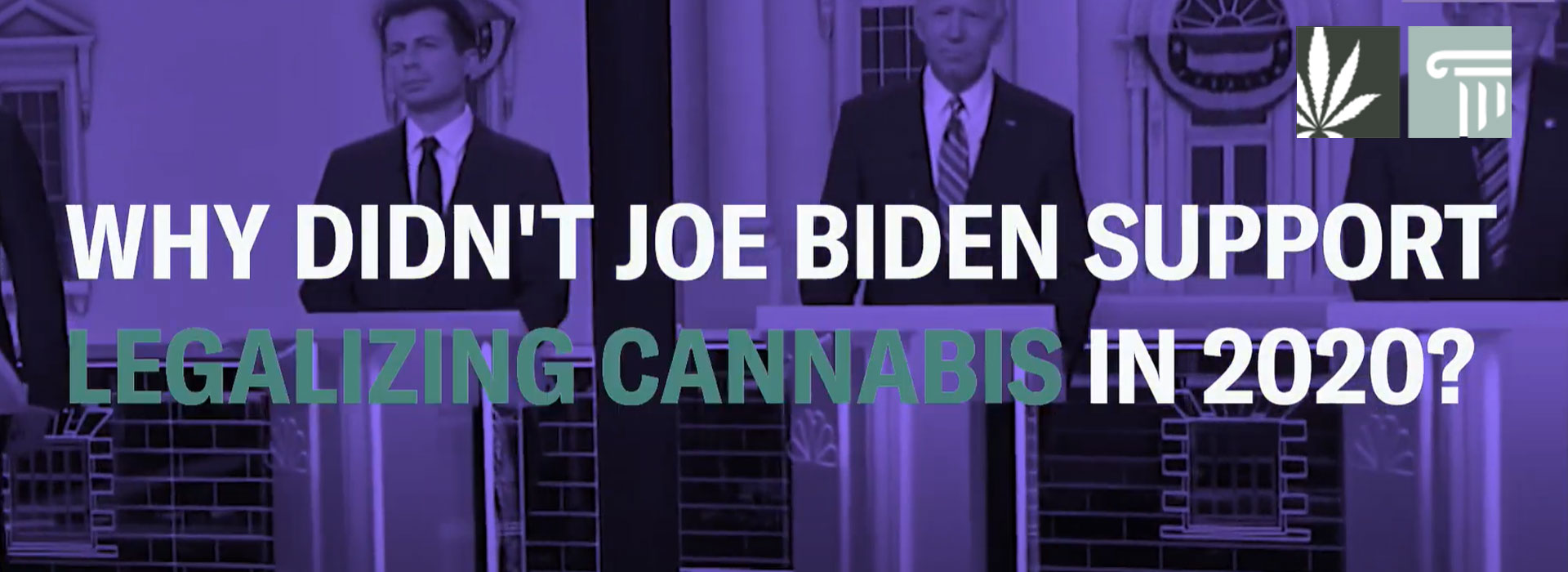President Joe Biden’s refusal to endorse marijuana legalization during his election campaign was due to his racially-motivated concern that doing so could cost working class votes in key battleground states, according to a former member of the Biden-Sanders criminal justice task force.
The joint task force was one of several established prior to Biden’s formal nomination for the presidency to develop policy proposals on a range of issues that each of the two leading Democratic nominees could get behind. Stacey Walker, co-chair of Sen. Bernie Sanders’ (I-VT) presidential campaign, served on the criminal justice task force and in an interview with the media outlet More Perfect Union gave an account of the Biden team’s reluctance to support marijuana legalization even with strong polling numbers on the issue.
“I think there was a political calculation there being made [by the Biden team] that working class people didn’t want to deal in these issues of cannabis legalization because, for far too long, people have made a link between cannabis legalization and black folks,” Walker said.
The Biden-Sanders criminal justice task force went on to recommend a slew of marijuana reforms but stopped short of full legalization, while party delegates then voted against a cannabis legalization amendment to the Democrat’s 2020 election platform.
Walker then detailed his frustration at Biden’s hesitancy to the interviewer – Sanders’ former campaign manager Faiz Shakir.
“President Biden wanted to commit more study to this before making a decision,” Walker continued. “But we know that the longer we wait on taking meaningful action at the federal level, the more people we’re going to lock up, the more lives we’re going to ruin, the more we’re going to perpetuate the disturbingly unfair war on drugs.”
Shakir goes on to reiterate Walkers’ points, claiming Biden’s team “was potentially concerned about the political effects that it might have with their own constituency and maybe costing them some votes in key battleground states, rather than actually winning them votes as we believed would occur and mobilizing a hell of a lot of people around the issue.”
While Biden and his team’s opposition to legalization is clear, what’s surprising is the president’s reasoning behind this position. In public, Biden wavered over why he remained opposed while his party overwhelmingly approved of the measure, but he settled on the idea that more scientific research is required into the plant before committing to legalization. In private, it appears Biden was more worried about the association in voters’ minds between marijuana legalization and racial justice while fighting a fiercely contested election against the backdrop of the Black Lives Matter protests.
Yet the assumption that “working class” people would be put off by Biden’s support of marijuana legalization on the basis of its association with black people’s oppression is quite the leap, and does nothing to explain the measure’s popularity across all the most notable demographics. Voters proved as much at the ballot box on Election Day in several states. Arizona, one of the election’s key battleground states, comfortably voted to legalize marijuana, while traditionally red states like Montana and South Dakota also voted in favor of the measure.
In some ways, Walker and Shakir’s account of the Biden team’s political calculations regarding cannabis legalization raises more questions than it answers. Was Biden’s team more concerned about “working class” sentiment or former President Trump’s ability to shape the narrative? And if Biden’s refusal to endorse marijuana legalization was primarily in order to help him win the election, then why has he not come out in favor of the measure since securing the presidency? It’s not as if the issue has dropped off the agenda. With Congress readying itself for federal level marijuana reform, it likely won’t be long before Biden once again has to weight in on the matter.






